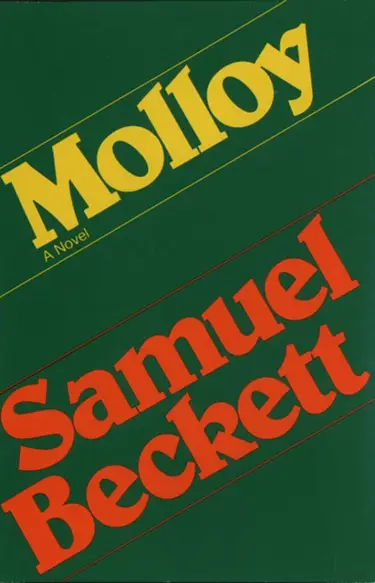Molloy

As Paul Auster explains, “Beckett’s renderings of his own work are never literal, word-by-word transcriptions. They are free, highly-inventive adaptations of the original text—or, perhaps more accurately, ‘repatriations’ from one language to the other, from one culture to the other. In effect, he wrote every book twice, and each version bears its own indelible mark.”
The three thematically-related books are dark existentialist comedies “whose ostensible subject is death,” but, as Salman Rushdie asserts, “are in fact books about life, the lifelong battle of life against its shadow, life shown near battle’s end, bearing its lifetime of sca rs.” As the books progress, the prose becomes increasingly bare and stripped down,and as Benjamin Kunkel notes, they “[have] become famous in the history of fiction because of what is left out: the usual novelistic apparatus of plot, scenes, and characters. … Here, it seems, is the novelistic equivalent of abstract painting.”
The Trilogy is generally considered to be one of the most important literary works of the 20th century, and the most important non-dramatic work in Beckett's oeuvre.